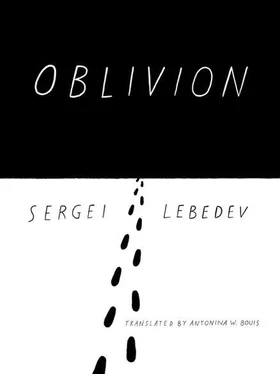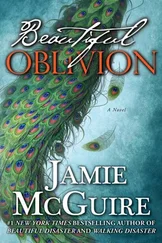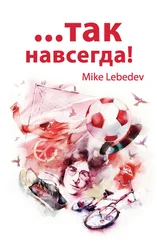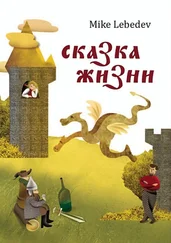There was yet another box in the drawer, creamy yellow, for vanilla fudge. This fudge had been my favorite sweet. Grandfather II knew it and whenever I visited he treated me; I even thought that if I opened the box I would find hardened honeyed grains of the candied fruits that now contained only the memory of their taste. Grandfather II would give me one, sometimes two, but never more, not out of stinginess but as if he knew the final number of candies not given to someone else, and he was in no hurry to hand them all to me at once, so they would last longer; I would not have accepted the candies, even though I liked sweets, for the candies from his fingers seemed oversweet, but I was afraid; I had the feeling that if I refused he would force it on me, shove it in my mouth.
The fudge box was a signal, a sign; only Grandfather II and I knew about the custom of treats; inside the box were strange handmade toys: a rifle two matchsticks long, with a sharp bayonet made from an awl; a horse covered in real horsehide I think—the hide was moth-eaten and straw stuffing fell out of the belly; a German shepherd made of glove leather, with sharp claws glued on; several human figures, as anonymous as tailor’s dummies—wood, screws, smooth rounded heads; their arms and legs moved, and there were clever notches in their hands, where the rifle fit perfectly. The toys were very old and too real for toys; it was clear that they were just a small part of some set and I could feel that you didn’t play with them the way you do with plastic soldiers—wood, iron, leather were not of a toy nature; the objects in the box were too heavy, too carefully detailed—they lacked the abstraction of toys that left room for the imagination; on the contrary, they seemed as if someone had the idea to depict a specific horse, dog, and people in this crazy way—except the people had no clothes and only one of them had Lilliputian leather boots the size of thimbles.
I had never encountered anything like this; I did remember that Grandfather II had said several times—in a roundabout way, vaguely, and perhaps even making it up—that when I grew up he would give me some very special—and he didn’t say toys, he said playthings, games. There they were—rifle, horse, dog, and then people; they could not belong to a child, they were handmade souvenirs for an adult—and at the same time they gave off the aura of madness, a neurosis, a wild concentration on details that came from the inability to capture the whole, the morbid detail of a mad concept, the same kind of paganism as in keeping the teeth. The little figures could have belonged to an aged military officer replaying old battles, but ones in which the wooden soldiers led by the will of the blood-maddened marshal die for real, die the death of things—which is why they had to be made of simple, elementary materials, wood, iron, leather.
I was stunned; the sun’s sting, the poison, it was like a blow, a snakebite; I wanted to find a document, evidence, and instead I found Pandora’s box.
If he had been alive, Grandfather II would have given me the figures and explained something, told me their provenance; a story or a fairy tale, an anecdote—and they would have been turned into amusing marionettes or cute things from the past: here’s what little ones had before there was the Detsky Mir children’s store in Moscow. I would have taken them, depending on my age, as toys or as souvenirs; I would have kept them without feeling everything I was feeling now that I was alone with them.
The figures were scary—I didn’t want to hold them. It seemed that touching them had its dangers; that they were a connection with the dead people they depicted; yes, the figures were anonymous, devoid of concrete features—but in each of them I sensed a person, just as devoid of traits, ruthlessly dehumanized, rolled smooth by time.
The spirit of the times was fully realized in them: not the general and superficial one that is in the air and forms an era’s ambience—fashion, slogans, speeches, technological innovations—but what is deeper and closer to the heart: the concepts of good and evil, the concepts of human and inhuman, the dominant note of relations, what one man can do to another—and the times will accept those deeds as a matter of course.
The spirit of the times—what is a person in those times, how free, or unfree, is the human in people; the figures belonged to a time when a person wasn’t even a toy, for that image allows for fate, which is varied and enjoys fickle games, but a unit deprived of fate.
The figures in the box—horse, dog, and three featureless “people”; they had that clumsy solidity that distinguishes a peasant harness or homemade scythes, pitchforks, and shovels; they were obviously not made by Grandfather II, he wouldn’t know how, his fingers did not have such tactile precision; some parts showed that the maker lacked needle files and chisels, everything was done with just two or three tools: knife, hone, and boot needle; old leather, old copper wire, waxed thread—the figures were meant to last a long time, or perhaps, the maker didn’t know how to work any differently.
There was nothing more in the box; I untied the pack of letters. I didn’t remember Grandfather II writing letters often or receiving many; not New Year’s or Soviet Army Day cards or telegrams or parcels—Grandfather II lived almost without any connections, friendships, family; his telephone rang only once when I was there, and he spoke shutting the door to his room, and I listened to him apologize and ask the caller to call back tomorrow—I’m not feeling well—as if he didn’t want to reveal the real reason, that a boy was visiting him. The letters must have survived because the housekeeper didn’t find the key to this drawer when she was burning his papers; the drawer had remained locked for years, and then, when the key was found, it seemed silly to burn a few remaining documents.
The letters, which the sender must have assumed would be read aloud to Grandfather II by the housekeeper, had wishes for good health; every letter mentioned seal blubber and bear fat sent to Grandfather II; asked if it had helped; seal blubber and bear fat—it was all about the fat, the writer explained how they caught the seal, how they shot the bear; the correspondent was a clumsy writer, words did not obey him, and he piled them on, one holding up the next so the sentence did not fall apart. But as soon as it came to hunting, the cold will of the shooter organized the rhythm of halting style. Seals and bears, bears and seals, the resident of a northern town exterminated them, made the long trek to the sea, went out hunting in the winter, and I don’t think it had to do with Grandfather II’s needs; the writer did not hunt in order to send parcels to the capital. He talked about hunting as if he did not do the shooting but simply observed the carbine fire the bullets; this removal of the weapon from a subordinate role and ascribing its own significance to it showed a certain restrained reverence. The man had found a support, had found an object that was different from other objects, that had power over life, which other objects lack, and he’d clung fast to it ever since.
He leaned on the rifle, carbine, gun, the way people of superficial faith lean, figuratively, on the church; the weapon became his religion but without all the emotion that usually surrounds it; the smell of the oil, the smoke, the machismo of a man with a double-barreled shotgun, ammunition belts, gunfire, hunting stories—none of this seemed to matter to the writer. He believed strictly and almost chastely, believed in the higher wisdom of the mechanism, in the trigger, firing pin, percussion cap, shell, and barrel; he believed in the laws of physics that made the shot possible. The seals and bears he killed died because the shotgun has to shoot; because the sight seeks a target; because the bullet wants to fly; he was a barely literate arbitrary poet of shooting who saw the world as being flat—a target does not have a third dimension—and that made reading his letters even more frightening; any murderer fixated on destruction was more human than this connoisseur of bluing gun barrels, direct and reverse threading, different gunpowders and types of sights, in love with his gun because it was soulless, which made it seem lofty, impartial, and just.
Читать дальше












